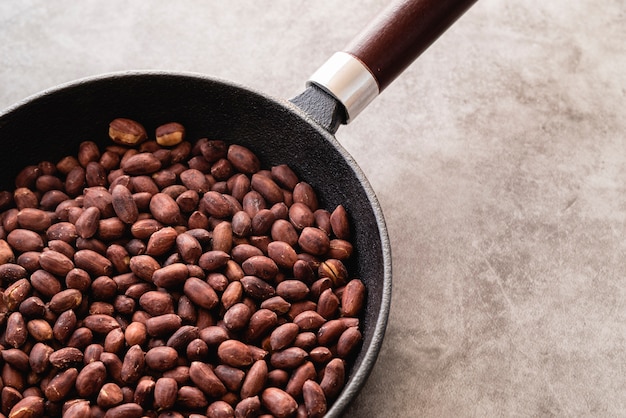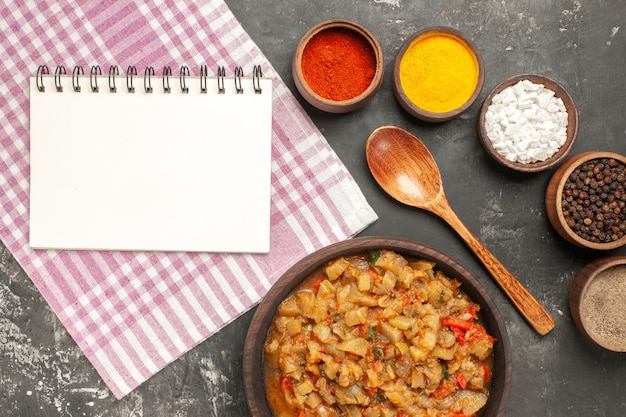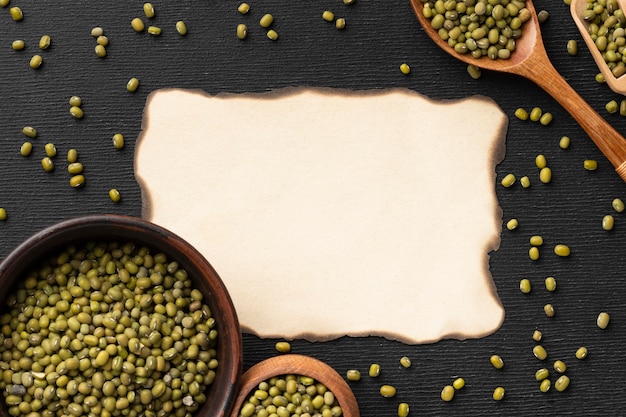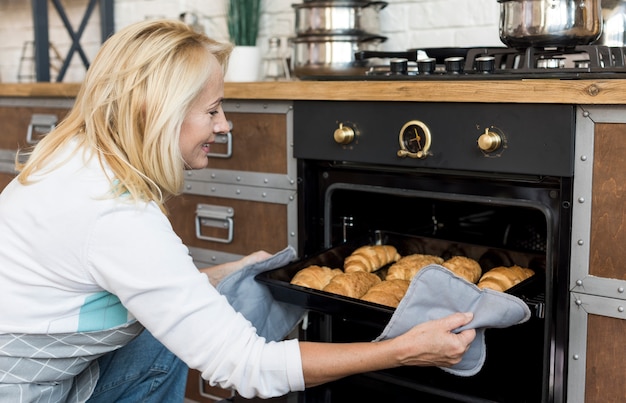Beans! They're the unsung heroes of the culinary world, a versatile and nutritious ingredient that can be the star of the show or a delicious supporting act. I, for one, am a total bean enthusiast. There's something wonderfully comforting about a hearty bowl of beans, whether it's a soul-warming chili on a chilly winter night or a bright and breezy salad on a sunny summer day. But, let's face it, cooking beans can be a bit of a learning curve. They can take a while to cook, and you definitely need to get the timing right. Otherwise, you're left with undercooked, hard beans that are more likely to make you feel bloated than satisfied. So, let's dive into the fascinating world of bean cooking times and together, we'll ensure you get those perfect, tender, and flavour-packed beans every single time.
(Part 1) Understanding bean types: A Journey Through the Bean Family

First things first, we need to get acquainted with the different types of beans. Because trust me, not all beans are created equal. Different bean varieties have different cooking times, and some require a bit more TLC than others. So, let's break down the main bean types you'll likely encounter at your local supermarket.
1.1. The Quick Cooks: For When Time is of the Essence
Life gets busy, right? That's why I love the quick-cooking beans. They're perfect for a weeknight dinner when you're short on time but still want a delicious and healthy meal.
- kidney beans: These classic chili stars are ready in about an hour, though I always add another 15 minutes to ensure they're super tender and melt in your mouth.
- pinto beans: Another chili favourite, pinto beans also cook in about an hour. You can get away with less cooking time, but they'll be a bit firmer.
- black beans: The perfect base for a spicy black bean salsa or a hearty soup, black beans cook in about an hour. Look for soft, but not mushy beans.
1.2. The Medium Cooks: A Perfect Balance of Time and Tenderness
These beans take a little longer to cook, but they're still relatively easy to manage.
- cannellini beans: These large, white beans are ideal for creamy soups or salads. They usually take around 1.5 hours to cook.
- butter beans: With a buttery flavour and a lovely creamy texture, these beans are perfect for salads or a Mediterranean-inspired dish. They take about 1.5 hours to cook.
- Chickpeas: The go-to bean for hummus and falafel, chickpeas cook from scratch in around 1.5 hours. They're also fantastic in salads, stews, and curries.
1.3. The Long Cooks: A Labor of Love for Extraordinary Beans
Now, these beans require a bit more patience and dedication. They take longer to cook, but they're worth the effort.
- borlotti beans: These beautiful, speckled beans have a lovely, earthy flavour. They need about 2 hours to cook, but they're perfect for a hearty bean stew.
- Broad beans: These beans are a bit more unusual, but they're delicious. They take about 2 hours to cook, and they're great in salads or roasted with herbs.
- Fava beans: Similar to broad beans, these beans have a slightly sweet, nutty flavour. They need around 2 hours to cook, and they're often used in Italian cuisine.
(Part 2) The Art of Soaking: Unleashing Bean Potential

Here's a game-changer when it comes to bean cooking: soaking. soaking beans before you cook them can significantly reduce their cooking time and make them more digestible. I'll admit, I'm not always the best at remembering to soak my beans, but when I do, I notice a big difference. They cook much faster, and they're less likely to cause digestive issues.
2.1. Why Soaking Matters: A Deeper Dive into Bean Science
Soaking beans helps break down complex sugars that can cause gas and bloating. It also allows the beans to absorb water more evenly, making them cook more quickly. When I'm short on time, I'll often soak beans overnight. This allows them to absorb water and become ready for quick cooking in the morning.
2.2. The Soaking Method: A Simple, Effective Technique
To soak beans, simply place them in a large bowl and cover them with plenty of cold water. Leave them to soak for at least 6 hours, or even better, overnight. Remember to drain the beans before cooking.
2.3. The No-Soak Shortcut: For Those in a Hurry
Alright, I know not everyone has the time or patience to soak beans. If you're in a hurry, you can skip the soaking step. But be prepared for a longer cooking time. Just add the beans to a pot with fresh water, bring to a boil, and then reduce heat and simmer for about 2-3 hours, depending on the type of bean.
(Part 3) The Perfect Bean Cooking Method: A Step-by-Step Guide

Now, let's talk about the actual cooking process. Here's my tried-and-true method for perfect beans.
3.1. Get Started: Setting the Stage for Success
Choose a large, heavy-bottomed pot. You'll need enough room for the beans to cook evenly. Add your soaked or unsoaked beans to the pot, cover them with plenty of fresh water, and add a generous pinch of salt.
3.2. Bring it On: The Boiling Point
Bring the water to a boil over high heat. This is the time to make sure there's enough water. The beans should be completely submerged. Once boiling, reduce the heat to a gentle simmer. The key here is to keep the water simmering gently, not boiling wildly.
3.3. Simmer Away: Patience is Key
Let those beans simmer, covered, for the recommended cooking time, depending on the type of bean. You'll want to check them every 20-30 minutes, making sure there's enough water and giving them a gentle stir.
3.4. The Test of Tenderness: A Culinary Checkpoint
Once the beans have cooked for the recommended time, it's time for the taste test. Take a bean out of the pot and give it a gentle squeeze between your fingers. It should be soft and tender, but not mushy. If it's still a bit firm, continue cooking for another 15-20 minutes.
(Part 4) Mastering the Bean Cooking Times: Your Guide to Perfect Timing
Here's a handy table summarizing the approximate cooking times for different types of beans, both with and without soaking:
| Bean Type | Soaking Time | Cooking Time (Soaked) | Cooking Time (Unsoaked) |
|---|---|---|---|
| Kidney Beans | 6-8 hours | 45-60 minutes | 1.5-2 hours |
| Pinto Beans | 6-8 hours | 45-60 minutes | 1.5-2 hours |
| Black Beans | 6-8 hours | 45-60 minutes | 1.5-2 hours |
| Cannellini Beans | 6-8 hours | 60-90 minutes | 2-3 hours |
| Butter Beans | 6-8 hours | 60-90 minutes | 2-3 hours |
| Chickpeas | 6-8 hours | 60-90 minutes | 2-3 hours |
| Borlotti Beans | 6-8 hours | 90-120 minutes | 2.5-3.5 hours |
| Broad Beans | 6-8 hours | 90-120 minutes | 2.5-3.5 hours |
| Fava Beans | 6-8 hours | 90-120 minutes | 2.5-3.5 hours |
Remember that these are just estimates. The actual cooking time can vary depending on the age of the beans and the altitude you're cooking at. It's always a good idea to check the beans for tenderness during the last half hour of cooking.
(Part 5) Adding Flavor: Elevating Your Bean Dishes to New Heights
Now, let's talk about adding flavour. Don't just stick with plain salt! Get creative and explore different ways to enhance the taste of your beans.
5.1. Herbs and Spices: The Power of Aroma and Taste
Herbs and spices can transform bland beans into something extraordinary. Here are a few of my favourites:
- Bay leaf: A classic addition to bean dishes, a bay leaf adds a subtle, earthy aroma.
- Thyme: A fragrant herb that goes well with beans, thyme adds a warm, earthy flavour.
- Rosemary: Another excellent choice for bean dishes, rosemary adds a slightly piney flavour.
- Garlic: Garlic is a must-have for any bean dish. It adds a pungent, savoury flavour that complements beans beautifully.
- Onion: A simple, versatile ingredient that adds depth and sweetness to beans.
- Cumin: A warm, earthy spice that pairs perfectly with beans, especially black beans.
- Chili powder: A spice blend that adds a kick of heat to your bean dishes.
5.2. Beyond Herbs and Spices: Exploring Other flavor enhancers
Here are a few other ingredients you can use to add flavour to your beans:
- Tomato paste: This concentrated tomato paste adds a rich, umami flavour to beans.
- Vinegar: A splash of vinegar adds a tangy brightness to beans, especially when used in salads.
- Lemon juice: Lemon juice is a great way to add a citrusy zing to beans.
- Bacon: bacon fat and bits of bacon add a smoky, salty flavour to beans.
- Smoked paprika: A sweet and smoky spice that adds a depth of flavour to beans.
(Part 6) The Benefits of Bean Magic: A nutritional powerhouse
Now, let's talk about why you should be incorporating more beans into your diet. Beans are incredibly nutritious and offer a range of health benefits. They're a great source of protein, fibre, and essential vitamins and minerals.
6.1. Protein Powerhouse: Fueling Your Body
Beans are a great plant-based source of protein. They're a perfect addition to any vegetarian or vegan diet, and they can also help to keep you feeling full and satisfied.
6.2. Fibre Fuel: Supporting Digestive Health
Beans are packed with fibre, which is important for digestive health. Fibre can help to regulate bowel movements and prevent constipation. It can also help to lower cholesterol levels and control blood sugar.
6.3. Vitamin and Mineral Riches: Nourishing Your Body from Within
Beans are rich in vitamins and minerals, including iron, folate, magnesium, and potassium. These nutrients are essential for maintaining good health and wellbeing.
(Part 7) Creative bean recipes: Unleashing Your Culinary Imagination
Now, let's get inspired with some delicious bean recipes. Here are a few of my favourite ways to use beans:
7.1. The Classic Chili: A Hearty and Satisfying Staple
A hearty and satisfying chili is a classic bean recipe. You can use any type of beans you like, but I prefer to use a mix of kidney beans, pinto beans, and black beans.
7.2. The Vibrant Salad: A Refreshing and Healthy Choice
Beans are fantastic in salads. They add texture and protein, and they're perfect for a light and refreshing meal. My favourite bean salad includes cannellini beans, chickpeas, corn, cherry tomatoes, red onion, and a lemon vinaigrette.
7.3. The Creamy Soup: A Comforting and Delicious Treat
Creamy soups are a great way to use white beans like cannellini beans or butter beans. You can make a simple tomato soup, or you can get more creative with a lentil and butternut squash soup.
7.4. The Savoury side dish: Adding Depth to Your Meals
Beans can also be a delicious side dish. Try roasting them with herbs and spices, or adding them to a casserole.
(Part 8) FAQs: Solving Your Bean Cooking Dilemmas
Here are some frequently asked questions about bean cooking:
8.1. Can I use canned beans?
Absolutely! Canned beans are a great time-saving option. Just make sure to rinse them well to remove any excess salt. However, if you have the time, cooking beans from scratch gives you more control over the flavour and texture.
8.2. Can I freeze beans?
Yes, you can freeze cooked beans. Just make sure to let them cool completely before storing them in an airtight container in the freezer. They'll keep for up to 3 months.
8.3. What if my beans are too soft?
If your beans are too soft, you can try straining them and rinsing them with cold water. This will help to firm them up a bit.
8.4. What if my beans are too hard?
If your beans are too hard, you can try adding more water and continuing to cook them for another 15-20 minutes. If they're still too hard, you can always blend them to make a soup or dip.
8.5. What if my beans are causing gas?
Beans can cause gas and bloating for some people. If this is a problem for you, try soaking your beans for a longer time, or consider using a bean enzyme supplement.
Everyone is watching

Prime Rib Roast Cooking Time Chart: Per Pound Guide
Cooking TipsPrime rib roast. Just the name conjures images of lavish dinners, crackling fires, and hearty laughter. It’s ...

How Long to Bake Potatoes in the Oven (Perfect Every Time)
Cooking TipsBaked potatoes are a staple in my kitchen. They're incredibly versatile, delicious, and surprisingly easy to m...

Perfect Rice Every Time: The Ultimate Guide to Cooking Rice
Cooking TipsAs a self-proclaimed foodie, I've always been a bit obsessed with rice. It's the foundation of countless cuisi...

The Ultimate Guide to Cooking Asparagus: Tips, Techniques, and Recipes
Cooking TipsAsparagus. The mere mention of this spring delicacy conjures up images of vibrant green spears, crisp and burs...

Ultimate Guide to Cooking the Perfect Thanksgiving Turkey
Cooking TipsThanksgiving. Just the word conjures up images of overflowing tables laden with delicious food, the scent of r...
